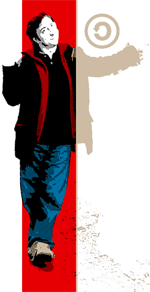 Un dizionario hacker
Un dizionario hacker
di Arturo Di Corinto
Editore Manni
Collana Sollevazioni
Pagine 212, brossura
€ 14.00
EAN 9788862665162
Un dizionario ragionato dei termini più significativi della cultura hacker, in cui di ogni voce si dà definizione, interpretazione e storia. L’autore, con sguardo critico e tutt’altro che neutrale, sfata i pregiudizi e fa luce sul mondo della controcultura digitale, spesso percepito come illegale e pericoloso. Dalla A di Anonymous alla W di Wikileaks, passando per Bitcoin, Defacement, Free software, Gnu e Media activism, l’autore ci accompagna alla scoperta di uno dei movimenti più attivi nella lotta alla globalizzazione capitalista, nella tutela della democrazia partecipata, della condivisione del sapere e della libera circolazione della conoscenza. Lemma dopo lemma, emerge la prospettiva politica dei “pirati informatici” e il senso della loro battaglia fatta a suon di decrittazioni e remix. Perché “privato” è il participio passato di “privare”.
Ultime recensioni/segnalazioni: La Repubblica
MediaLaws | Articolo21 | Key4Biz | Pagina Tre



